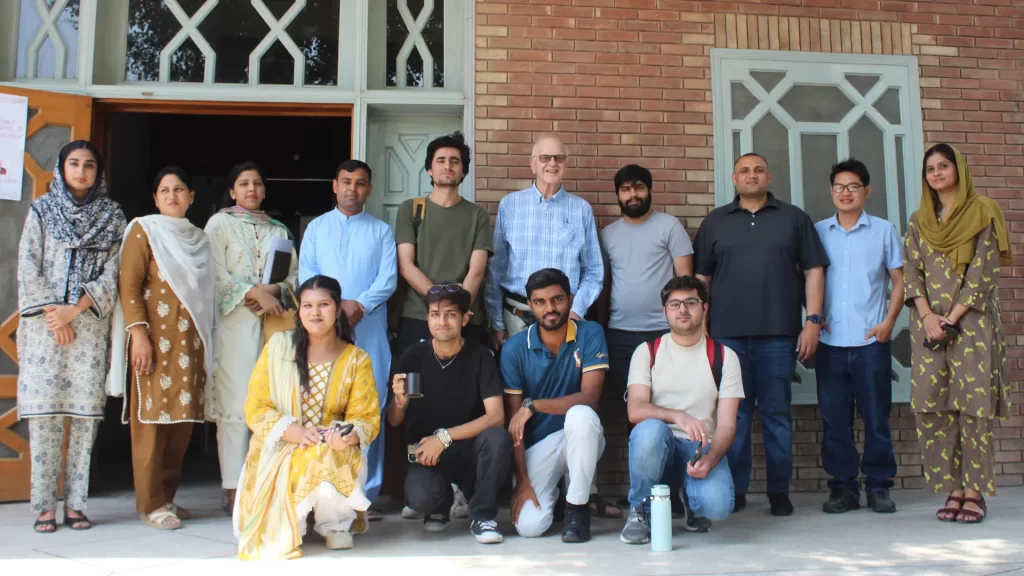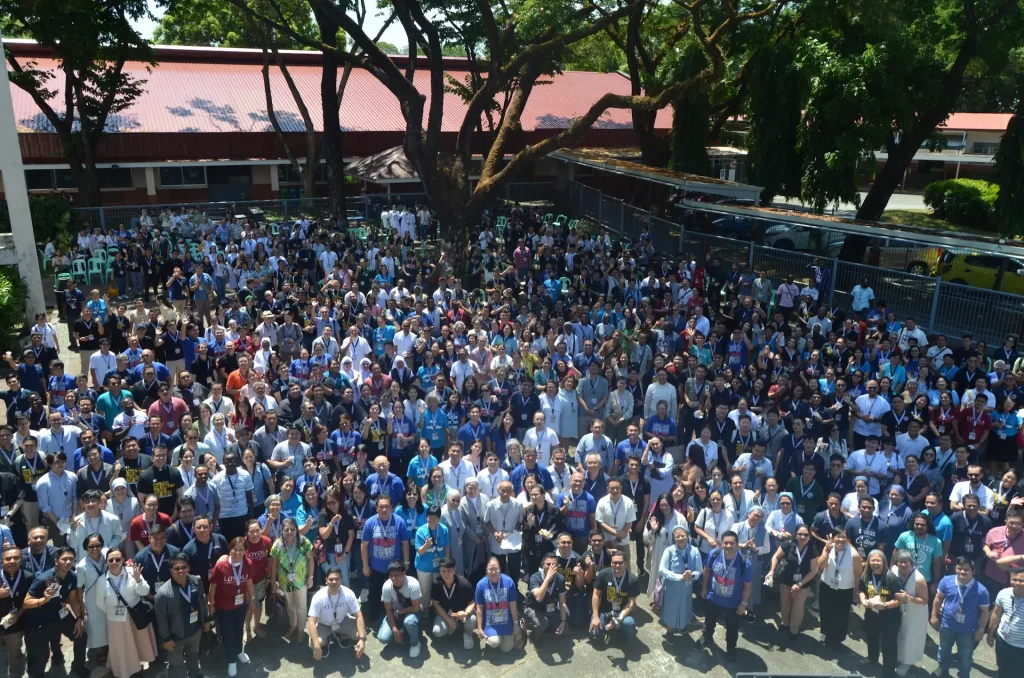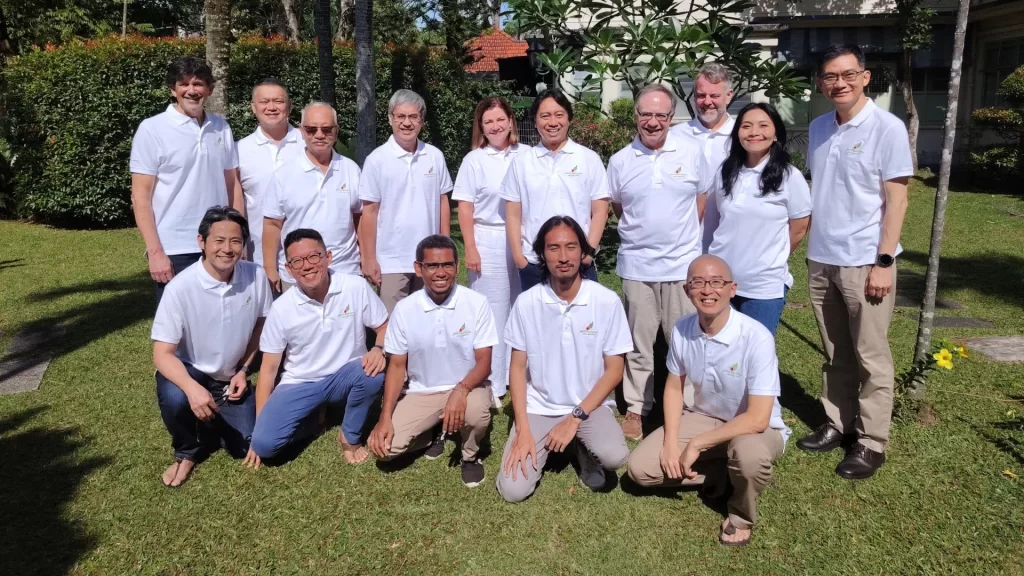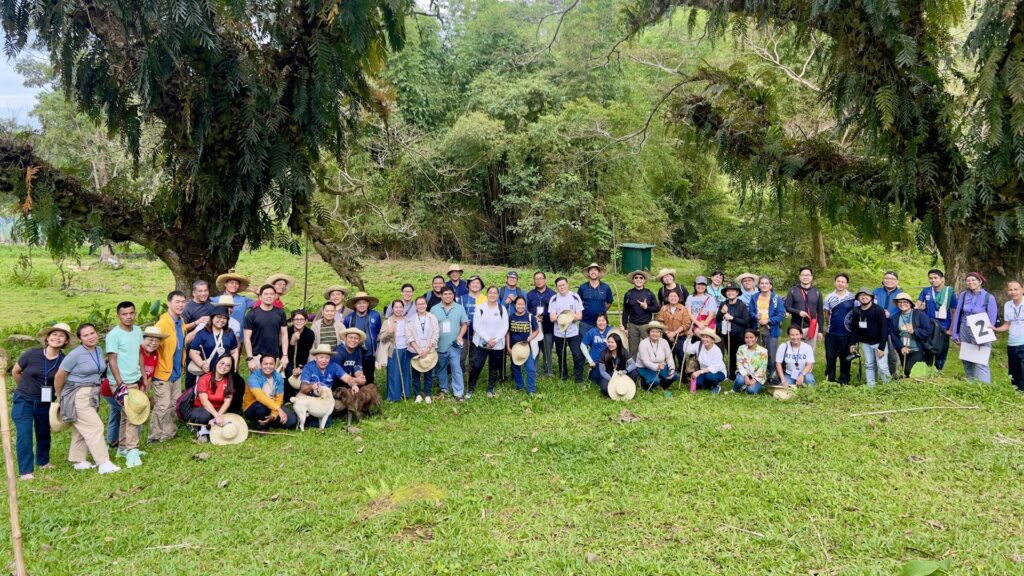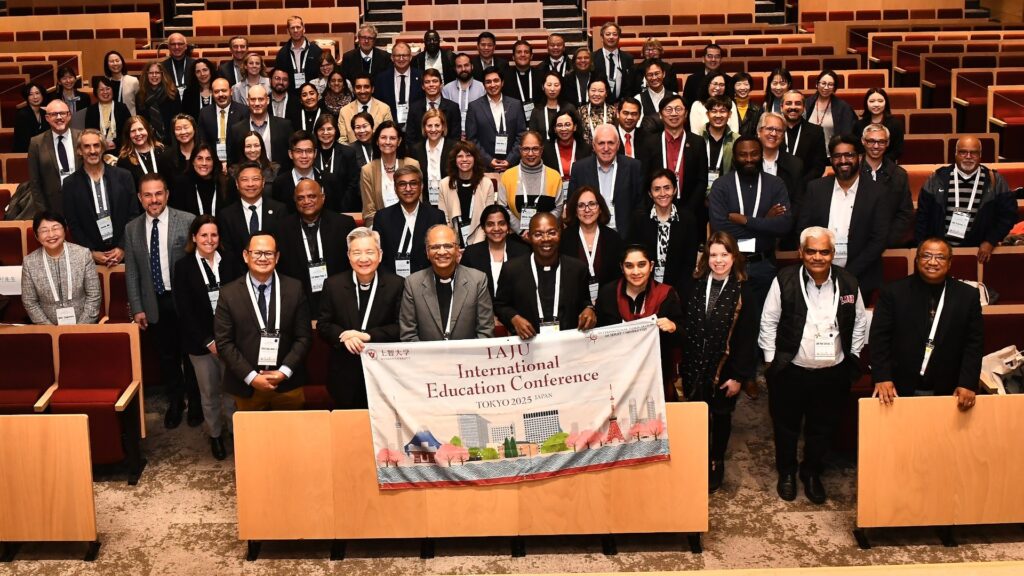“The Malatesta Program is envisioned as a person-to-person exchange based on Fr. Ricci's model of establishing friendships among Chinese and American scholars, and providing opportunities for intellectual and cultural exchange through lectures, academic conferences, and joint research and publications. The objective of the program is to promote academic collaboration through an exchange between faculty and graduate students at the three California Jesuit universities and those at selected Chinese universities.” wrote John P. McGarry, Provincial of California.
(When he gave permission to publish in our [Chinese] Province News the following letter, which he wrote to the California Province, Fr. John McGarry wrote: “I am very grateful that we have started this program and that it gives us a concrete way to contribute to the Chinese Apostolate for the Society.”)
Dear Jesuits and Apostolic Partners, February 18, 2010
As you know, for many years now, China has been a stated apostolic preference for the Universal Society of Jesus. In light of this fact and the reality of our Province history in relationship to the China apostolate, I am writing to inform you of a new California Province initiative, the Malatesta Program. While the Province initiated this program and provided its initial funding, Loyola Marymount University, Santa Clara University and the University of San Francisco have agreed to join the Province in sponsoring it, and for this I am most grateful. I am particularly pleased that this program represents a cross-sector initiative in our international ministries and in higher education. Next week, at my annual meeting with the Higher Education Administrators—Presidents, Rectors, Provosts and Board Chairs of the three Province-sponsored universities—one of our agenda items will be to review the activities to date of the Malatesta Program.
The Province's involvement in China began in 1928 when Fr. General Wlodimir Ledochowski, S.J., at the request of Pope Pius XI, asked the California Province to provide men for the China mission. Over the next twenty years, fifty-five California Jesuits served in China, mainly in parishes and high schools. After the proclamation of the People's Republic of China in 1949, all of them were either expelled from the country or imprisoned. The last two men were finally released from a Shanghai prison in 1957. Many of these Jesuits later became involved in apostolic work in Taiwan or with Chinese Catholic communities in California.
When the Cultural Revolution ended and governmental restraints on religion eased in the late 1970s, Fr. Edward Malatesta, S.J., a professor of biblical studies at the Gregorian University, received permission from Fr. Pedro Arrupe to leave his position at the university to learn Chinese. For the next twenty years, Fr. Malatesta engaged in multiple activities on behalf of the Church in China. He was particularly involved in helping Fr. Alyosius Jin, SJ (now Bishop of Shanghai) develop Sheshan Seminary outside Shanghai.
In 1984, Fr. Malatesta co-founded the Ricci Institute for Chinese Western Cultural History at USF with the California Province. The center was named after Fr. Matteo Ricci, S.J., who served in China during the sixteenth century. The institute is a global resource for the study of Chinese-Western cultural exchange with a focus on the social and cultural history of Christianity in China. Four years later the institute became part of USF's Center for the Pacific Rim.
Fr. Malatesta's sudden death in Hong Kong in 1998 was a great loss for the Society and the Chinese Church. It is completely appropriate, therefore, that this new Province initiative for China should be named for him and that its office should be located at the Ricci Institute at USF.
The methodology of Fr. Ricci and the other European Jesuits who began the inculturation of Christianity in China was founded upon a respect for Chinese culture and the formation of personal relationships between scholars. Fr. Ricci's first Chinese publication was a treatise "On Friendship."
The Malatesta Program is envisioned as a person-to-person exchange based on Fr. Ricci's model of establishing friendships among Chinese and American scholars, and providing opportunities for intellectual and cultural exchange through lectures, academic conferences, and joint research and publications. The objective of the program is to promote academic collaboration through an exchange between faculty and graduate students at the three California Jesuit universities and those at selected Chinese universities. In particular, it seeks to support the development of religious studies programs in China and to enhance the state of theological investigation there and at the California Jesuit universities.
The idea for such a program began in the 2006-07 academic year after two faculty members from the Jesuit School of Theology were invited to lecture in China. There they met faculty from some of the most prestigious universities in China who expressed enthusiasm for an exchange program with our three universities that would emphasize religious studies and theology. During the past two years, connections have developed and expanded, with financial support mainly from the Province and the Chinese universities. We will now begin seeking other funding sources to allow the program to mature and continue.
The Malatesta Program is administered by a committee that includes two faculty members from each of the universities: Tom Rausch, SJ and Robin Wang from LMU; Paul Crowley, S.J., and Eric Hanson from SCU; and Dan Kendall, S.J., and Xiaoxin Wu from USF. The committee is chaired by Tom Buckley, S.J., from JST at SCU, who serves as my delegate.
This May we commemorate the four-hundredth anniversary of Fr. Ricci's death in Beijing in 1610. Please pray with me that in Ricci's spirit, we will continue to foster friendship and understanding, research and teaching, and cultural exchange for the benefit of faculty in our Province universities and selected universities in China.
Gratefully in the Lord,
John P. McGarry, S.J., Provincial

